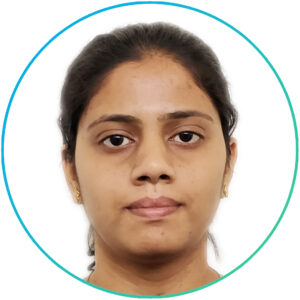Most of the visually impaired people live with a feeling that they can’t achieve much in life. Even their parents feel the same. The reason for which is there is lack of awareness and information available on issues pertaining to visually impaired. A report released in 2017 said that the number of blind people in India stood at 8.8 million, which will grow to 115 million by 2050. George Abraham realised early on that India has a large base of the untapped potential of the blind people. This potential is often overlooked owing to the fact that families are not aware of how blind people can be self -reliant and achieve to the best of their ability. This prompted him to start EyeWay, a network of help desks which provides counselling for blind persons and their parents.
George, who himself has an eye condition since childhood started EyeWay, a unique helpline for blinds and their family. It is a network of nine centres situated at different parts of the country which helps a blind person or his/her family to connect with counsellors present at these nine centres in case of any query, be it related to education, skill development or job opportunity.
 Journey to make visually-impaired people self-reliant
Journey to make visually-impaired people self-reliant
The Logical Indian spoke to George Ibrahim, the man behind EyeWay to understand what prompted him to start an organisation dedicated exclusively to the needs of visually impaired. George says, “I have been suffering from an eye-condition since childhood. But I was lucky that my parents were extremely supportive and they did not let me feel that I am any less capable than other children.”
Talking about his journey, George said, “It was 1988-89 when my wife was pregnant with our first child. She had then taken a break from her work and in her free time, she decided to learn Braille. For this, we decided to visit a school for blinds. The school we visited was in deplorable condition.”
The school was not maintained properly, even the teachers are not trained properly to tend to the needs of a visually impaired child. “The attitude of the teachers was disappointing. There was no conviction in the way they spoke. Even the curriculum was old and not up to the mark. They themselves said ‘these children are blind, how much can they achieve’. All this made me realise how lucky I was, and that many other children might not be as fortunate.”
George made a resolve to do something about it. “Soon after, I set out for a journey across the country, to understand people and their attitude towards visually impaired people and different possibilities.”
He was in Dehradun when he saw a group of young visually impaired people playing cricket. The idea of inculcating a sense of belongingness, team spirit and channelizing the energy of the visually impaired through sports appealed to him. “I realised that this was a great way to shift the focus of people from the blindness of a person to their ability.”
He then started National Cricket tournament for the visually impaired 1996. Within two years of its inception, the tournament reached international level, with seven countries participating. By 2006, George decided to hand over the reins to a younger team and he then moved to Delhi.
“Through the Cricket tournaments which we organised, it reinstated my belief that blindness is not a problem, attitude is.”
It was in 2003 that George started Eyeway. “I realised that most of the times families don’t know how to nurture the true potential of their blind child.”
“One of my neighbours’ relative has two kids, both are visually impaired. My neighbour brought those children and their mother to me for guidance. The mother do not know how to make her children self sufficient. The mother kept in touch with me, always seeking information of how her children can be facilitated to help them perform well in their lives. Today, both the children are pursuing their post-graduation at the prestigious Tata Institute of Social Sciences.”
Having established that blind children can indeed achieve a lot if proper motivation and guidance is provided to them, George started Eyeway. “We initially began as a website. In those days, the internet was still a new concept, so we could not really engage many people. We soon started our own Hindi radio channel “Ye Hai Roshni Ka Karavan”. This saw tremendous success.”
In 2006, Eyeway established itself as a helpdesk. “We realised that people are most comfortable in their mother tongue. We decided to extend our network of helpdesks. We opened eight more centres across the country.”
How does Eyeway operate Eyeway is a network of help desks situated at nine locations across the country. The centres are distributed in a way that a person calling from the Northern part of India will be directed to Delhi helpdesk, for a person calling from Karnataka would be directed to the Bangalore helpdesk and a person calling from Maharashtra or Goa would be directed to the Mumbai helpdesk. There is one toll number, 1800 …












